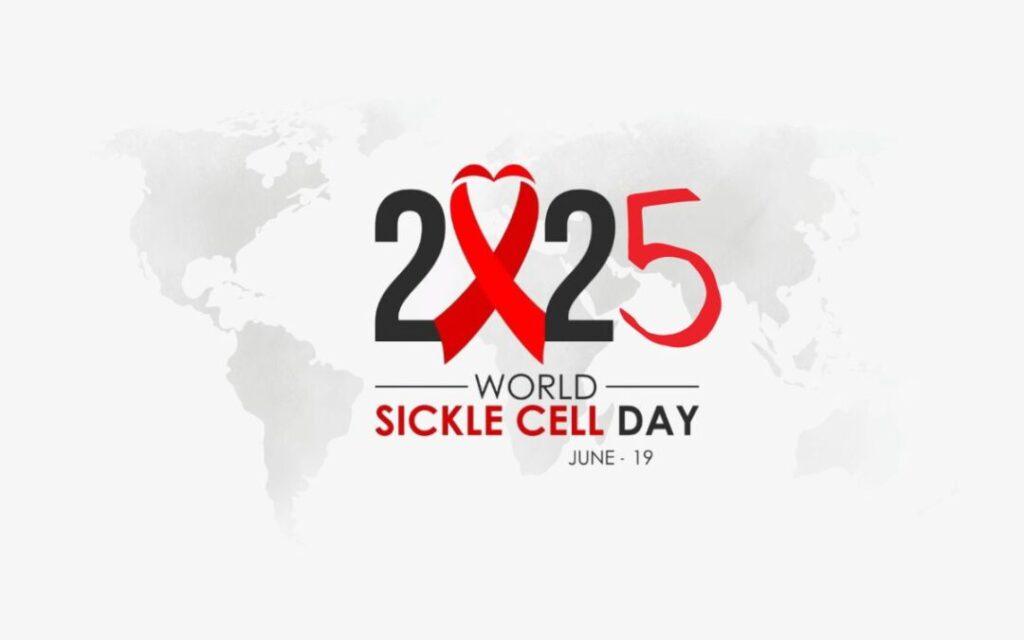As Nigeria joined the world to mark World Sickle Cell Day 2025 on June 19, health professionals, activists, and stakeholders used the occasion to throw light on the country’s fight against sickle cell disease (SCD), a major public health challenge.
The nation carries nearly 50% of the global SCD burden, so the celebration was not just symbolic but a call for refreshed commitment to strengthen current systems and expand access to care, early detection, education, and long-term care for the patients.
Sickle cell disorder, a hereditary blood disease that causes red blood cells to be deformed and destroyed, is endured by an estimated 4 to 6 million Nigerians, and over 150,000 infants are born annually with the illness.
Untreated or poorly managed, the illness can cause deadly complications such as stroke, organ failure, and life-threatening infections.
In recent years, however, Nigeria has taken proactive steps towards addressing the high prevalence of the disease by way of early detection programs, public awareness, clinical care systems, and genetic counseling services.
One of the most significant interventions already established is the newborn screening program, which some states have put in place in partnership with local and international health organizations.
It enables health workers to place infected infants on preventive treatments, including penicillin, folic acid supplements, malaria prophylaxis, and routine vaccinations.
Though the programmes are still small in scale, their success has stirred calls for the institution of a national newborn screening policy, whereby all infants born in Nigeria would be screened at birth.
In addition to detection, Nigeria has been enhancing access to specialized sickle cell clinics within certain public hospitals. The centres offer multidisciplinary care, bringing together haematologists, general physicians, psychologists, nurses, pharmacists, and counsellors to address the complex needs of sickle cell warriors.
Such states as Ogun, Anambra, and the Federal Capital Territory have had positive outcomes from having such facilities, which keep patients going with constant checkups, pain management techniques, and mental care.
The University of Abuja Teaching Hospital and the LUTH Sickle Cell Foundation Nigeria are some of those institutions that offer such overall care.
Moreover, there has been improved public enlightenment and genetic counseling in Nigeria, to reduce new incidences of SCD. The Sickle Cell Foundation Nigeria (SCFN) has played a major role in raising awareness through campaigns, mobile outreaches, and sensitization in partnership with community leaders and religious groups.
This educates youths and couples on their genotype and allows them to make knowledgeable marital or reproductive choices. Additionally, the genotype test has been made more accessible and affordable in most public health centers, with some NGOs offering free or subsidized tests during medical outreaches.
To help adult sickle cell patients, who experience discrimination and stigma in the workplace, some health practitioners have advocated for supportive labor policies. Despite being in its early stages, discussion on flexible work conditions, employer health insurance coverage, and protection from workplace discrimination is gaining momentum.
Warriors In Pink and Tony May Foundation are a few of the organizations that have also helped patients through vocational rehabilitation and the provision of jobs in accordance with their health status.
In the pharmaceutical area, Nigeria has made some progress in expanding access to life-saving medications like hydroxyurea, a medicine that reduces the frequency of pain crises and hospitalization.
These medications are now stocked in more government pharmacies and hospitals, due to collaborations with donor agencies and pharmaceutical firms. The National Health Insurance Authority (NHIA) has also been urged to broaden its list of covered services to include integrated sickle cell care packages.
Despite these efforts, there are remaining challenges. Insufficient funding, rural outreach disparities, and lack of consistency in policy implementation state-by-state represent setbacks to progress at the national level.
However, the momentum gained from World Sickle Cell Day 2025 has reopened debate on the formulation of a national sickle cell strategy that would integrate all interventions that are ongoing under one umbrella for sustainability and effectiveness.
As emphasis is being made, the fight against sickle cell disease in Nigeria is no longer just about managing symptoms, but about saving lives, protecting futures, and supporting individuals living with SCD to live full, healthy, and dignified lives.
With long-term investment, greater policy coherence, and integrated health systems, Nigeria stands poised to transform sickle cell care from crisis management to sustainable change.
On World Sickle Cell Day 2025, Nigeria emphasized its commitment to battling sickle cell disease (SCD), which poses a significant public health challenge in the country, accounting for nearly 50% of the global burden.
Efforts to combat the disease include early detection programs, increased public awareness, and improved clinical care systems.
Notably, newborn screening programs have been initiated in collaboration with international health organizations, enabling preventive treatment for affected infants.
The expansion of specialized sickle cell clinics in public hospitals provides multidisciplinary care, and public enlightenment efforts, led by organizations like the Sickle Cell Foundation Nigeria, aim to reduce new cases by educating about genotype-based reproductive choices.
Efforts to address workplace discrimination against adult patients and improve access to life-saving medications such as hydroxyurea have been launched, backed by collaborations with donor agencies and pharmaceutical firms.
The drive to integrate these initiatives into a cohesive national sickle cell strategy is gaining momentum. Despite facing challenges like insufficient funding and inconsistencies in policy implementation, the focus is on transforming sickle cell care from crisis management to a sustainable, long-term approach that ensures individuals with SCD can lead full and dignified lives.






